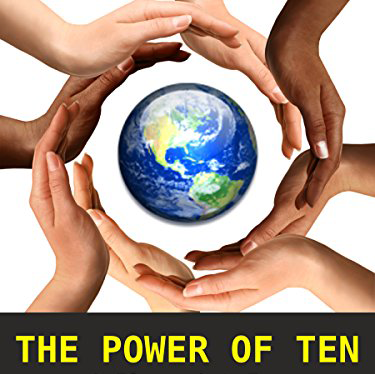Stories
Thinking is a discipline
A lot of our thoughts come very fast. When and where did we really learn how to think? Our thoughts very quickly lead to actual decision about things we do or don’t want. We base ourselves on instinct, emotions and immediately accessible knowledge. Rarely are we held back by the realisation that our emotions may be dangerous and our knowledge limited. Because we act like that, we are sometimes stuck with decisions. It is hard to back paddle from them especially if we have already spoken up about them.
The first question you could always ask yourself is: When do I have to have arrived at a decision. Another question is the relevance of a decision for yourself and for others involved, but the first question really tells you whether you have the luxury of time to really think the issue through. If there is no time available, if circumstances demand an immediate response, you have to ride with your instinct, but usually time is available. In such a case, there is time for a disciplined approach to thought. Sometimes any deliberations are your own, your own decision ultimately always ends up being your own responsibility, but maybe you can discuss with other people.
If there’s time try to speak with others involved in the problems on hand. You may have to trust on your empathy but verification gives a much better grip on the situation. Reflection and self-criticism are important for the best decisions. Many decision actually serve the ego more than the possibilities.
We live in an age where everything has to happen in often-incongruous haste. It looks like all necessary information lies at the tips of our fingers. A text message has to be answered by return and the least we can do is give an opinion that will later come back to haunt us as it was seen as an opinion. We’re then stuck in a thought that has become a decision outside of our control.
We are also very dependent in our thoughts. Thinking free and unencumbered is for most almost impossible because somehow we are somewhere dependent on somebody. We have a job to protect, a boss to please. That forces a different kind of thought on us than when we talk freely about societal development. Even amongst friends we have an inclination to debate and protect our self-righteousness or that of the establishment to which we like to belong. Really, we are hardly ever prepared to truly listen and to be inquisitive in order to be subservient to a wholesome discussion trying to find better ways.
It is apparently no longer worth our while to delve deeply into the consequences for society of all the things that happen around us. Why would we really still engage? Too many people are so dulled in their emotions, convinced as they are that their opinion no longer counts. We are left alone with our opinions. The Power of Ten can assist us in bundling our thoughts and thereby make the relevant ones relevant again.
Too many people have not grown up around conscious thought, seeing thought as a discipline. For me the nickel only dropped when I was thirty years of age; during my MBA education. At school we had to learn; not learn how to think, but learn stuff. Some of us must have had the benefit that we grew up around parents, family or friends that trained us in thought, but the school didn’t play much of a part in that for most. We miss out on a lot of societal power there. Our education can improve a lot in that respect by rethinking the goal of the school and adapting the curriculum to suit that. It will take a log time before we will benefit from the results. It is a cathedral project. The sooner we start it, the better it is.
Let’s say that the average ability of mankind for independent constructive thought on the scale of one to ten rates a five. The worst thinkers will deserve a two and the best will maybe score an eight (and certainly not the ten we all like to attribute to ourselves). That average can be raised and most gain is to be made by improving the lower scores. (The law of diminishing returns plays heavily here.) Nobody ever has all the best answers all the time. But wouldn’t it be nice for the best thinkers – who lead an isolated life, misunderstood on the top of their mountain – if they are better understood and if they can engage in constructive discourse to improve their thoughts and see them gain acceptance? A broader understanding will lead to a less divided better founded society that will be much more effective.
However, a people better trained in thought will be harder to mould in a uniform existence. They will cherish their diversity and find ways to make that fit in general society. Dogma, enforced wisdom, will no longer be accepted unthinkingly. Optimistic rhetoric about the future of the earth will no longer be gullibly accepted but will be verified and seen for what they are. It won’t be easy for the rulers to lord it over the masses once they have the benefit of a better education, more involved thought processes. The ruling elite does not necessarily support a better-educated people and they will contend that our schooling is actually pretty good. If we however think about in a disciplined fashion we will find out that it could be much better. That it has to be great.



